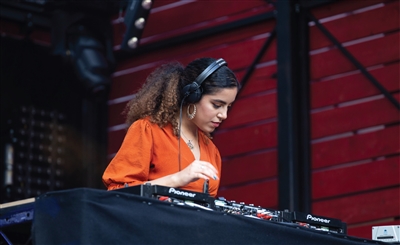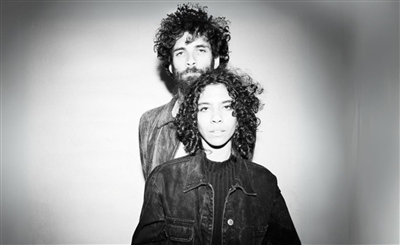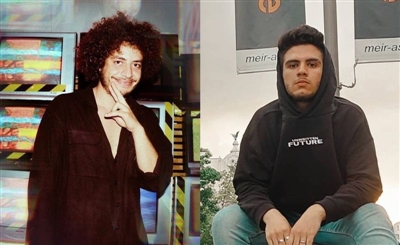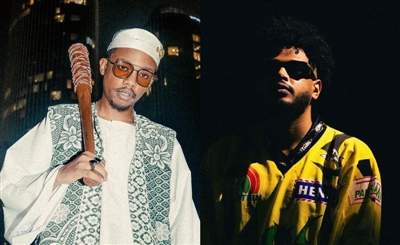Saudi Arabia is going through a massive cultural revolution following the ‘opening’ of the country a few years ago. On the musical side of things, massive festivals like Middle Beat dominate the market, while at the same time not much is heard from Saudi’s independent scene which remains under the radar of global audiences. A few weeks ago, I spoke with Ahmed Shawly, an industry veteran and co-founder of independent recording studio and record label, Wall Of Sound, to find out more about the practicalities of entering this largely untouched musical landscape.
Who is the current team behind Wall Of Sound?
The current team is myself (Ahmed Shawly), our sound engineer/studio director Ayman Nooh, Diya Azzony as our music director, and Mostafa Fahmy as our marketing/communications director. We used to have a fifth partner, Aamer Tashkandi, but they dropped out early on due to creative differences.
You have quite a long history with the music industry in Saudi Arabia as well, correct?
I worked with Rotana Music from around 2001-2005, and then with Music Masters from 2006-2012. Music Masters is the Saudi Company in charge of distributing Western music to Saudi Arabia and the rest of the Middle East. They were also the main distributor for Universal Music Group, Warner AMI and Sony Music. I was in charge of distributing the music from these three, whether in terms of communication, releases, getting clearance from the Saudi Government, and promoting and marketing their releases.
I spent about 13 years in the music industry, and I had a good idea of how it worked, so I applied this experience when we decided to start the Wall Of Sound back in 2018.
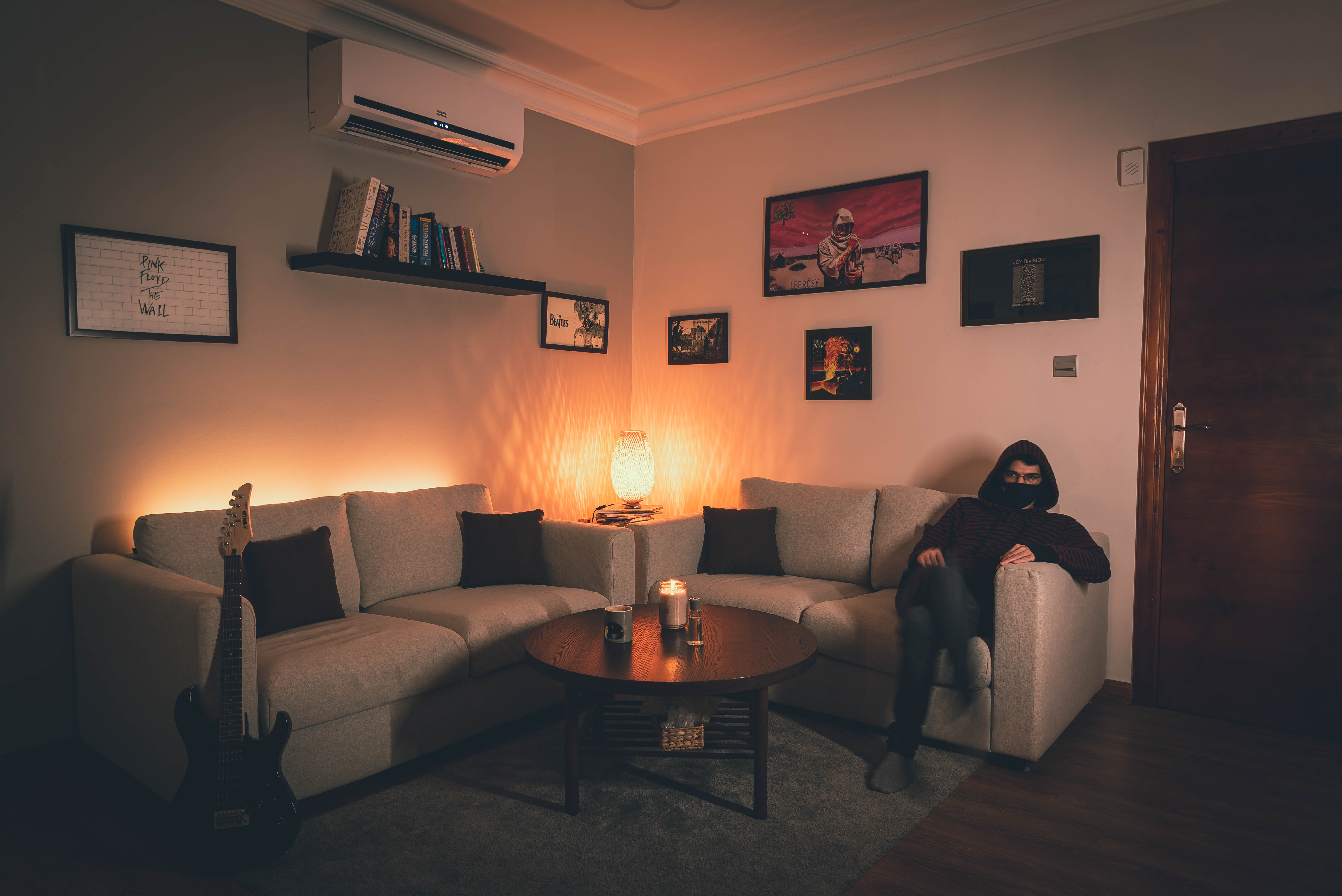
Run us through a brief history of Wall Of Sound.
The idea started back in around 2018, or around that time. We were a group of four friends who wanted to put together a [large] musical project, and around that time music had just ‘opened’ in Saudi Arabia. The government lifted restrictions on the kinds of music that could be played, and everything was booming. There started being live events, Amr Diab, Tamer Hosny, The Black Eyed Peas, David Guetta [etc] all played shows here.
We [at Wall of Sound] all had our prime in the 90s, so we’d been watching the music scene in Saudi Arabia for a long time and could see how the ‘opening’ of the country was the right moment to jump in and contribute to the musical changes that were happening in the country. Our first idea was to open a music space/coffee shop, kind of like Cairo Jazz Club, but our budget wouldn't allow that so we shifted the idea and decided to start a recording studio instead, since that was more [in line] our budget.
We built [the recording studio] from the ground up. We designed the rooms where the studios would be, we did the isolation & acoustic treatment for the space, and even had a team from Germany come in to make sure we had all the acoustics right, so that no frequencies were getting lost. We had it all ready [to launch around] April, which was a month after the corona virus started to hit the news and curfew was imposed. After that we decided to put the launch on hold until the situation cleared up.
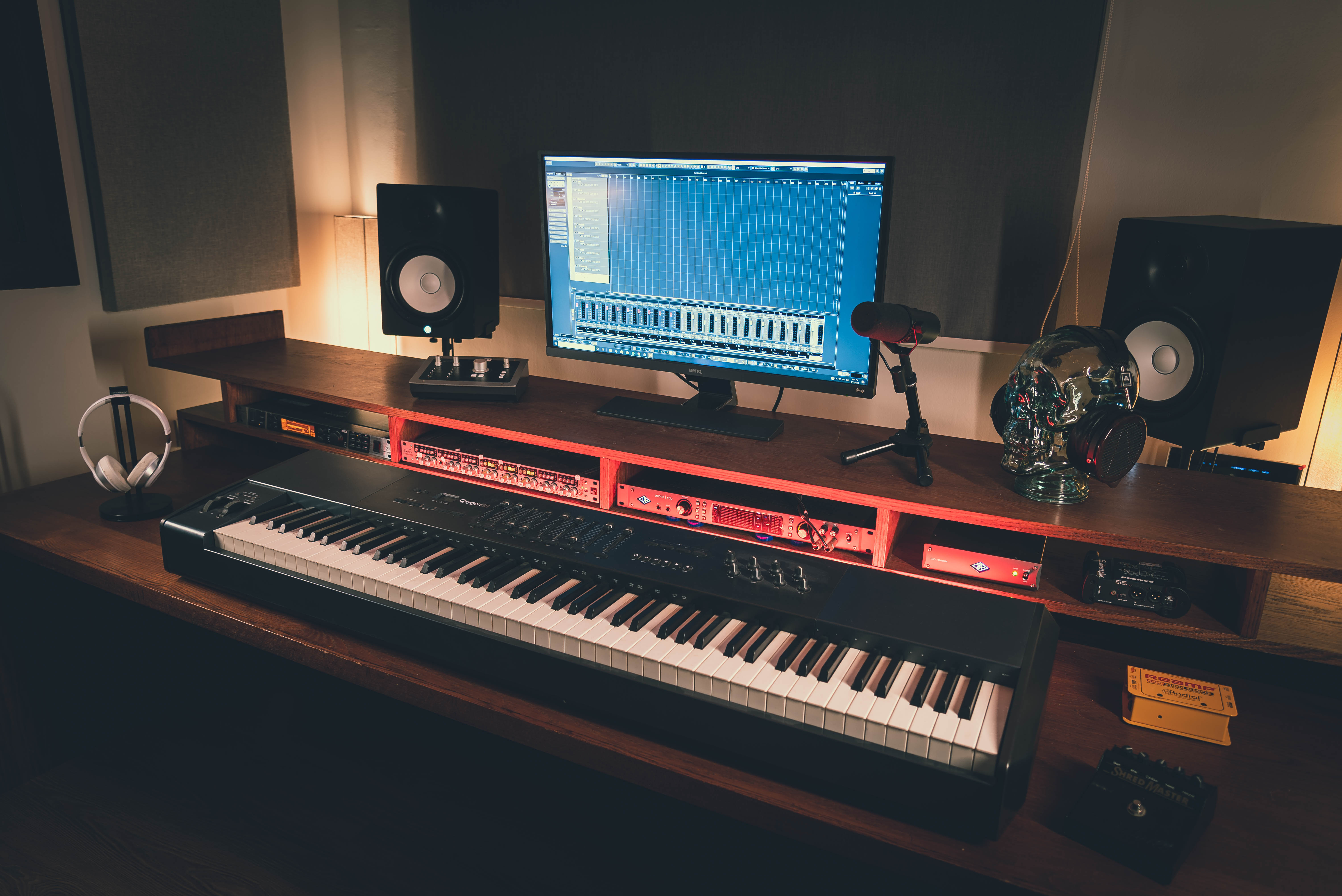
Did anything happen during that downtime?
We spent the time thinking about the project in more detail; what it lacked, what we could improve. We also took a break, because we’d been working [nonstop] since October 2019. Quarantine gave us an opportunity to take a break and think about the project in a deeper way, and let us go back to pursuing our hobbies. Aamer, for example, got back to writing music and composed the soundtrack to a film, and I got back into writing.
Around August, things started opening up in Saudi Arabia again, and by then we’d decided that [Wall Of Sound] would operate better as a record label and a recording studio.
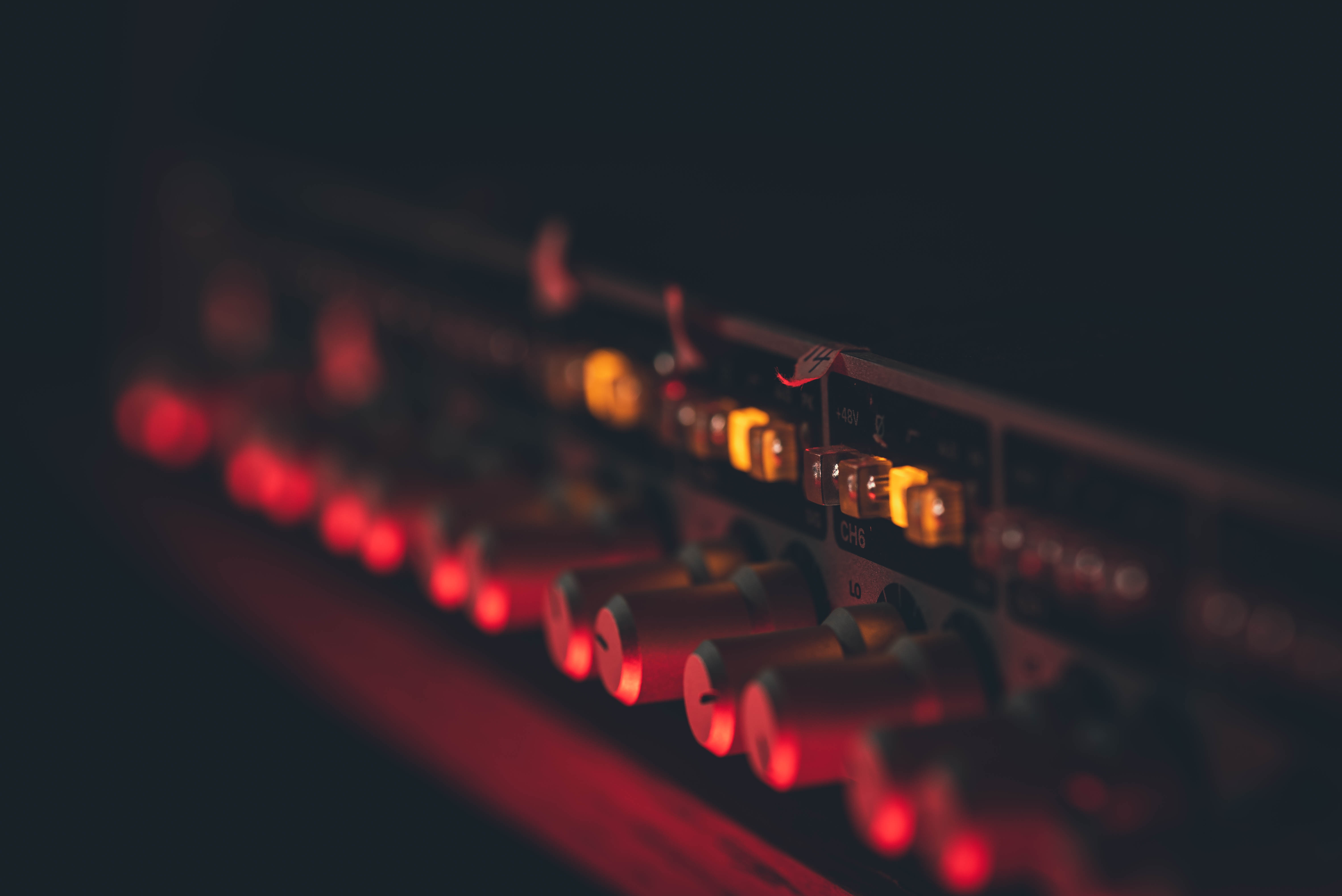
Do you consider yourselves Saudi Arabia’s first Indie record label?
In Saudi Arabia there's nothing like an ‘indie’ record label yet. All that's available are the big labels like Platinum Records — which belongs to MBC group — and Rotana, which is the biggest distributor of music in the country.
We aren't’ trying to compete directly with the big label], we’re trying to think about things and approach them with a different way of thinking. Our circumstances are also different — we don't have unlimited resources like the big labels do — we all have day jobs from 9-5 and go to the studio afterwards.
Around that time we were scouting for local bands in Saudi Arabia, trying to see who [would fit] with Wall Of Sound. We had finished building the studio but hadn't officially opened the space yet, and instead of just launching we started inviting local musicians over to see the space and — if they liked it — to jam and record music there.
Everyone who came to see the space was really impressed by the potential of the space and the fidelity of our equipment. Many of them had been looking for a space that would allow them to record music [properly] and to a high degree of quality. They were also impressed by our experience & knowledge in the music industry, and some of them felt like we could help take them to the next stage [of their careers]. We’ve got between 7-9 artists onboard with Wall Of Sound, and we’re planning on launching all of them in the coming months.
So that's what Wall Of Sound is now: an indie record label, [first and foremost] supporting the artists in Saudi Arabia, and [hopefully soon] supporting other artists in Egypt, Lebanon, Dubai, Jordan, Palestine, etc; we’re looking for artists who have a unique and interesting sound.
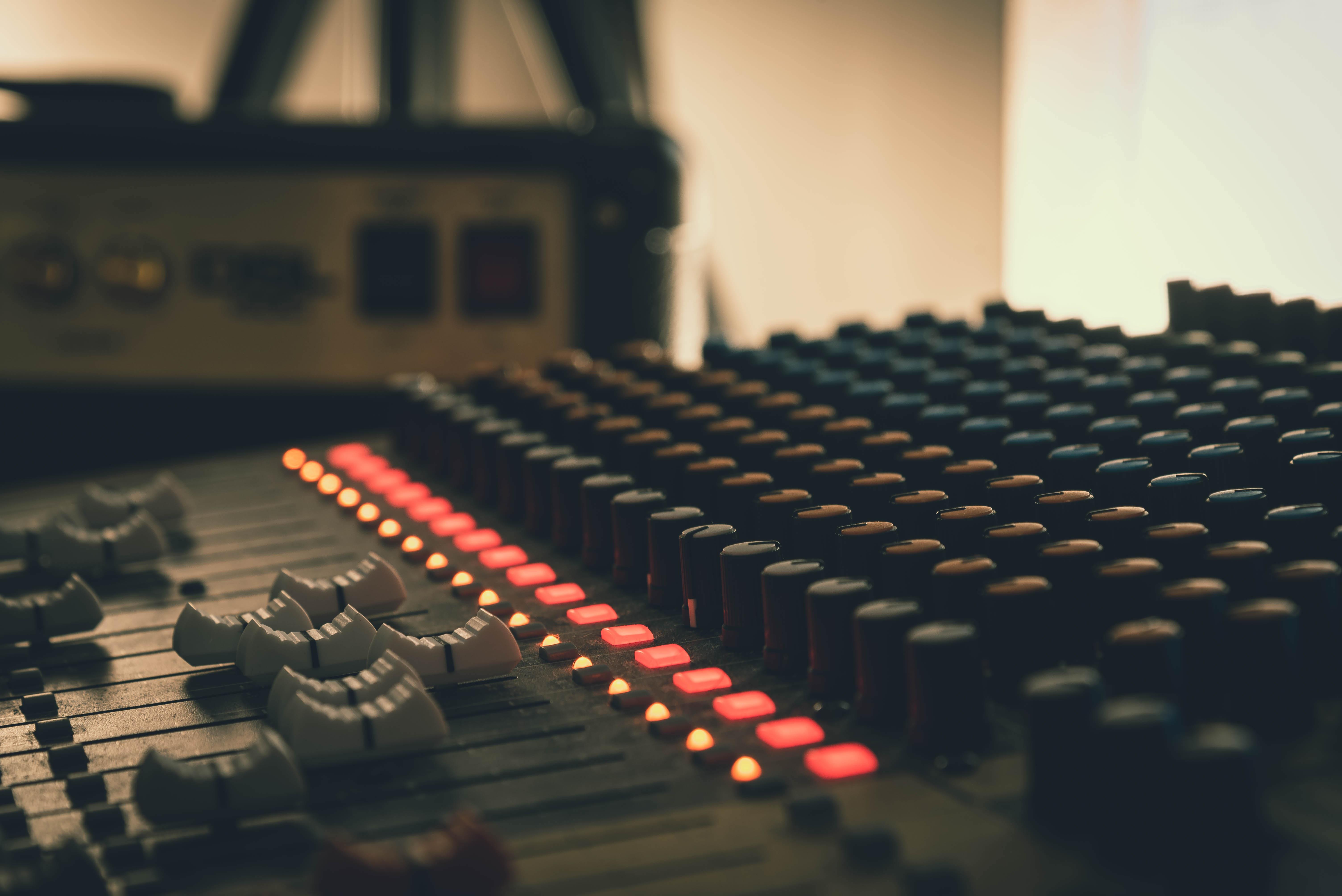
How has music been developing in Saudi Arabia:
After the ‘opening’ of the country things got a lot easier. My generation had to either buy CDs or have someone bring them from abroad, it was complicated [to a certain extent]. Now this new generation has unlimited access to all the music platforms, and has introduced them to a lot of music they weren't aware of before. It’s changed their ears as both fans and producers of music, and a lot of musicians we’ve met have an awareness of where [global music] is heading. [For example] they now look at Egypt and see that it's not all Amr Diab and Tamer Hosni, there are bands like Cairokee, Massar Egbari, Sharmoofers… there are bands offering something new that audiences hadn't heard before. Young people are now aware of all this music they did not have access to before. They're [excited] and active, and have an idea of how they want their careers to progress. Egypt has a [recorded] music history of over 100 years, and it gives Saudi Arabian youth an idea of what's [out there]. All we’ve done as Wall Of Sound is join in to help give them better production, marketing and promotion, and hopefully take them to the next level with their music.
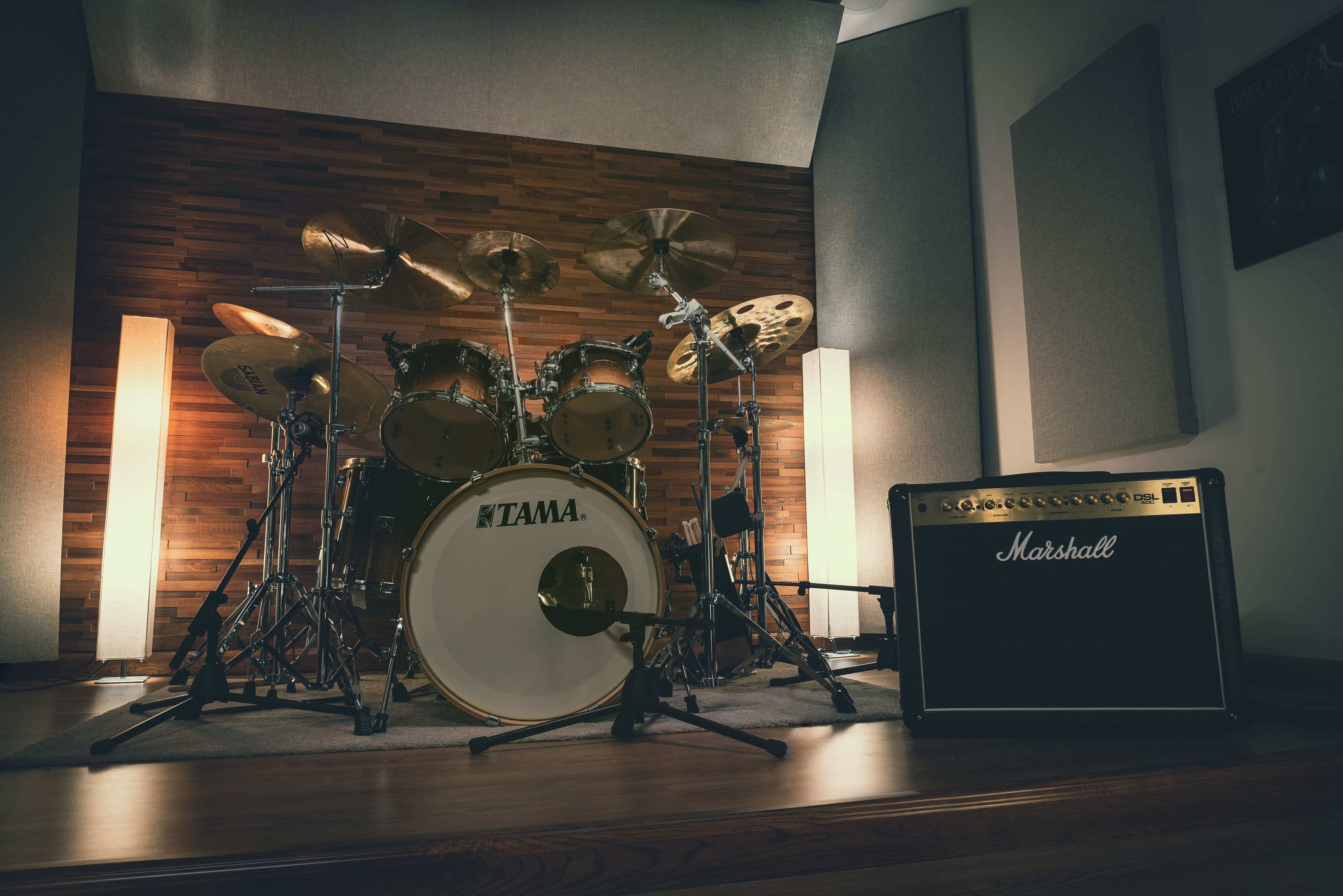
What’s the music landscape in Saudi Arabia like for independent artists, compared to major label/commercial artists?
The situation isn't ideal yet. It’s too difficult to perform anywhere in Saudi Arabia as an indie artist or artist who’s not on a major label, or not making commercial music. The main market here is khaleegy music, followed by traditional arabic music, followed by DJs and electronic music, and then indie bands. Even places that host indie bands just want them to show up and play covers, instead of original music. It's still not an ideal situation, but it's happening [slowly]. I think within the next few years there will be more space for indie musicians and bands to emerge.
As Wall Of Sound we’re introducing these indie artists [to the market], and with our guidance we’re hoping that in a few years they will grow and be a lot more in demand.
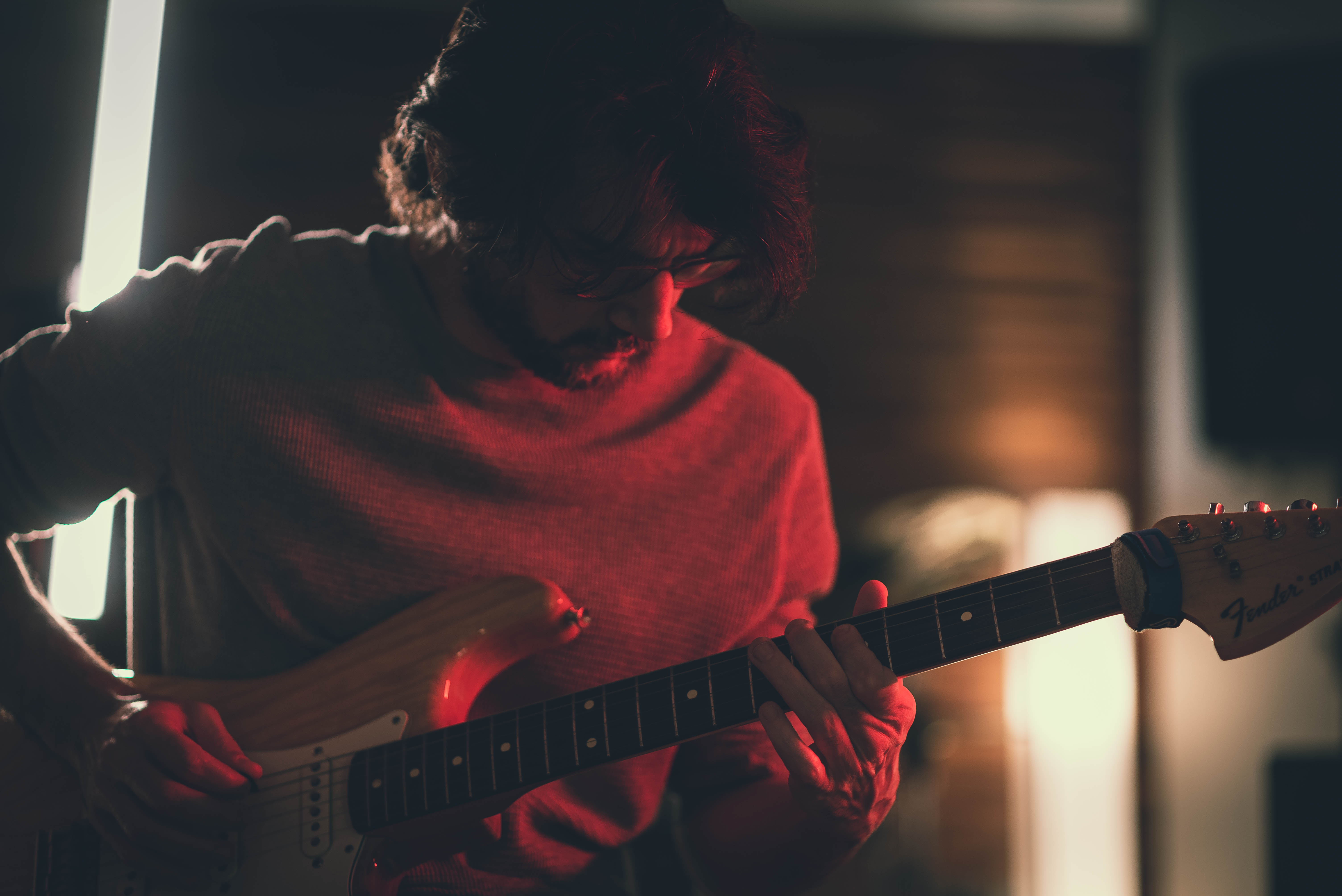
In terms of the space itself, can you tell us about the technology you have in the recording studio?
We offer both digital and analog recording services, but it all depends on the requirements of the artist. If they’re a band we’d go for the analog recording route, but for electronic music digital recording makes more sense. A full list of our equipment can be found on our website.
Tell me about this first release from the band Skeleton Crowd.
The first group we got involved with was a duo called Skeleton Crowd, composed of Abdulmalik Zubailah and Faris Alsobyani. I [best] describe them as a new wave/alternative band. Faris composes all the guitars, and Abdulmalik does the vocals and synths/programming in all their tracks, and they’ve got their first track out on October 22nd. We find their music very interesting — it’s not just [traditional] alternative rock — if we’re talking subgenres they incorporate new wave and industrial elements, [sort of like] Nine Inch Nails.
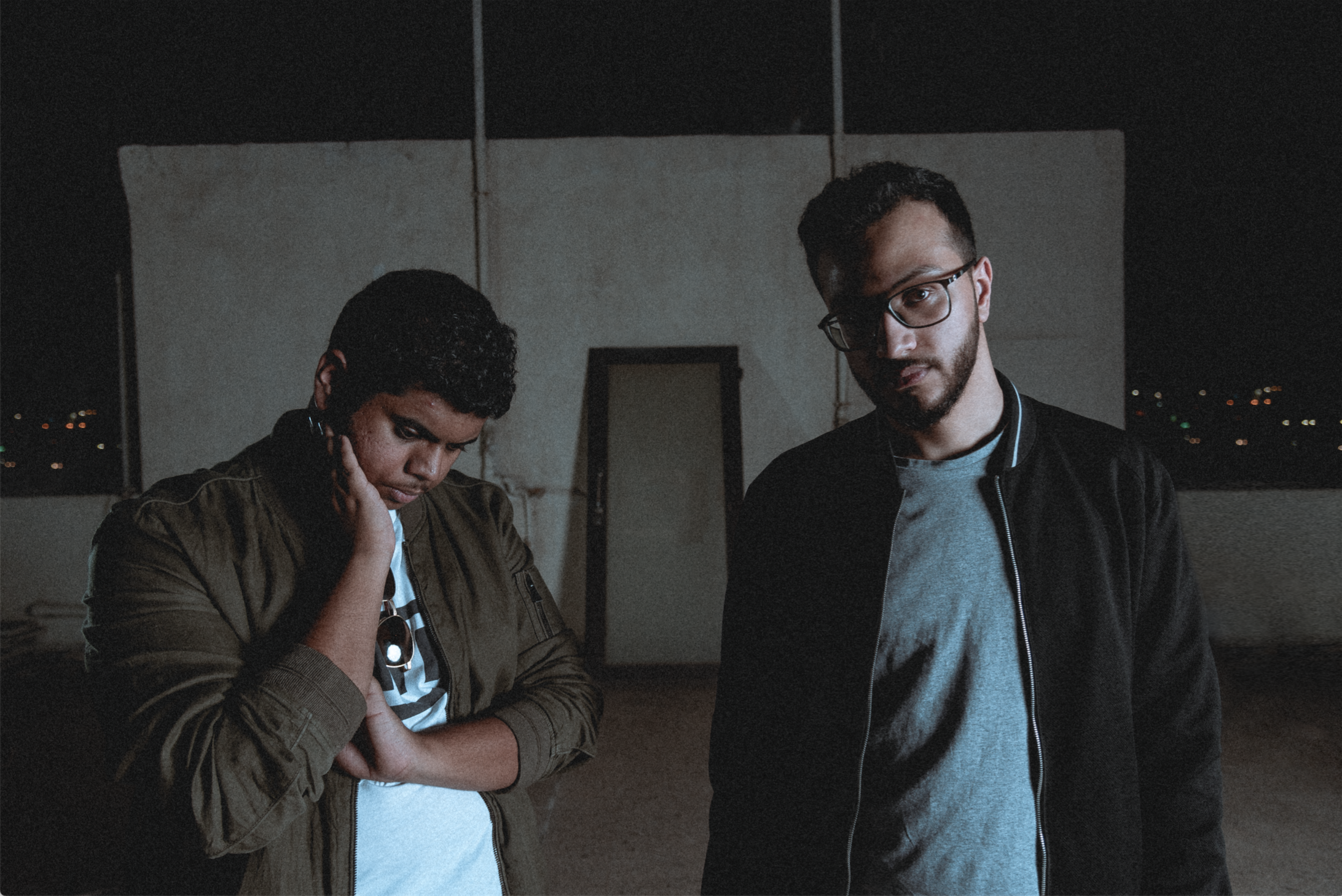
From the time they first emerged in 2016 I had my eye on them, each time they released a track they experimented and changed their sound. Sometimes they'd be a bit more ‘pop’, sometimes [the music] was darker, but it was clear that they had a lot of potential and room to grow. Their first single and music video is out now, and we’re going to be releasing their debut album by early next year.
What sort of music are you open to bringing on to the label?
All kinds, as long as it fits with our vision for Wall Of Sound.
Were there any challenges in opening up Wall Of Sound, legally speaking? By the sound of it there aren't really many independent recording studios.
While there are no other spaces [like ours] in Saudi Arabia, everything to do with registering the space, licenses, etc, was very smooth. We’ve received a lot of encouragement, people visit the space and are very impressed by the setup and the sound. We submitted all our paperwork to the Ministry of Trade and the Ministry of Information.
Here in Saudi Arabia everything is digital now [because of corona], even courtrooms are digital and court cases are done online. For us we just had to go onto the website for the Ministry of Trade, and in less than 30 minutes we had our paperwork. The ministry information took a bit longer, but it was only a few weeks before we had our legal documents approved. There is support from the Saudi government to encourage independent art. We’ve started having our own movie theatres, and movies produced in Saudi Arabia. This hasn't happened before.
Maybe the upcoming challenge, for Wall Of Sound, is setting expectations for our artists. We tell our artists not to have high expectations, because we’re just getting started with this project, and still introducing these bands to the local scenes. Commitment is important, and we’re looking for artists who are going [to stick with their word] and not disappear after releasing one song.
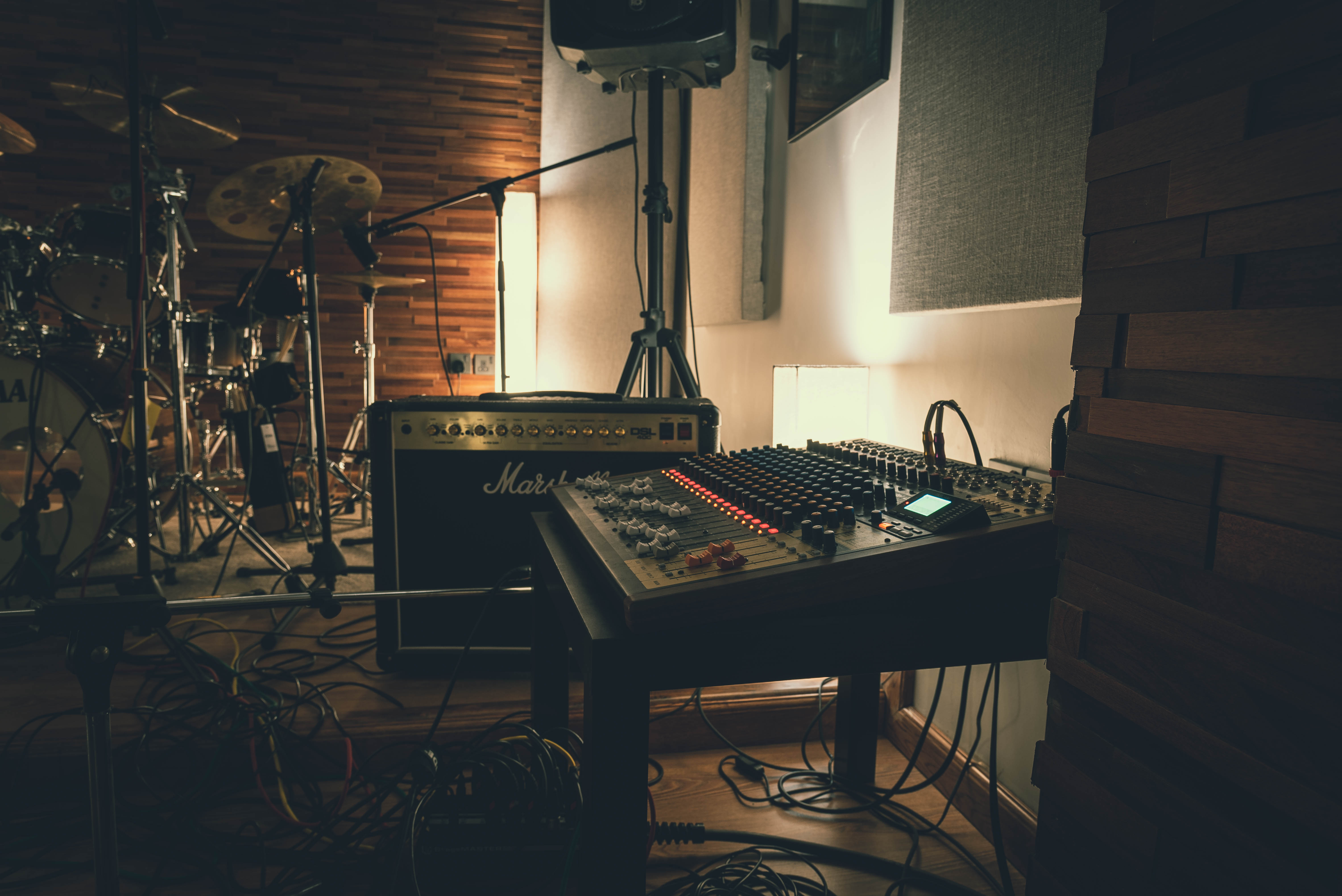
Do you have a vision for Wall Of Sound, a few years into the future?
In a few years we hope to see ourselves as a top record label in Saudi Arabia, with many great artists signed to us from all over the Middle East. We want to build the credibility so that people know they can come to Wall Of Sound for top quality music. We want both listeners and artists to trust Wall Of Sound and the people who work for us. Everything we do is based on transparency, there's nothing hidden and there’s no [behind the scenes messing around]. When an artist comes to us we want them to know that they can trust us with their music.


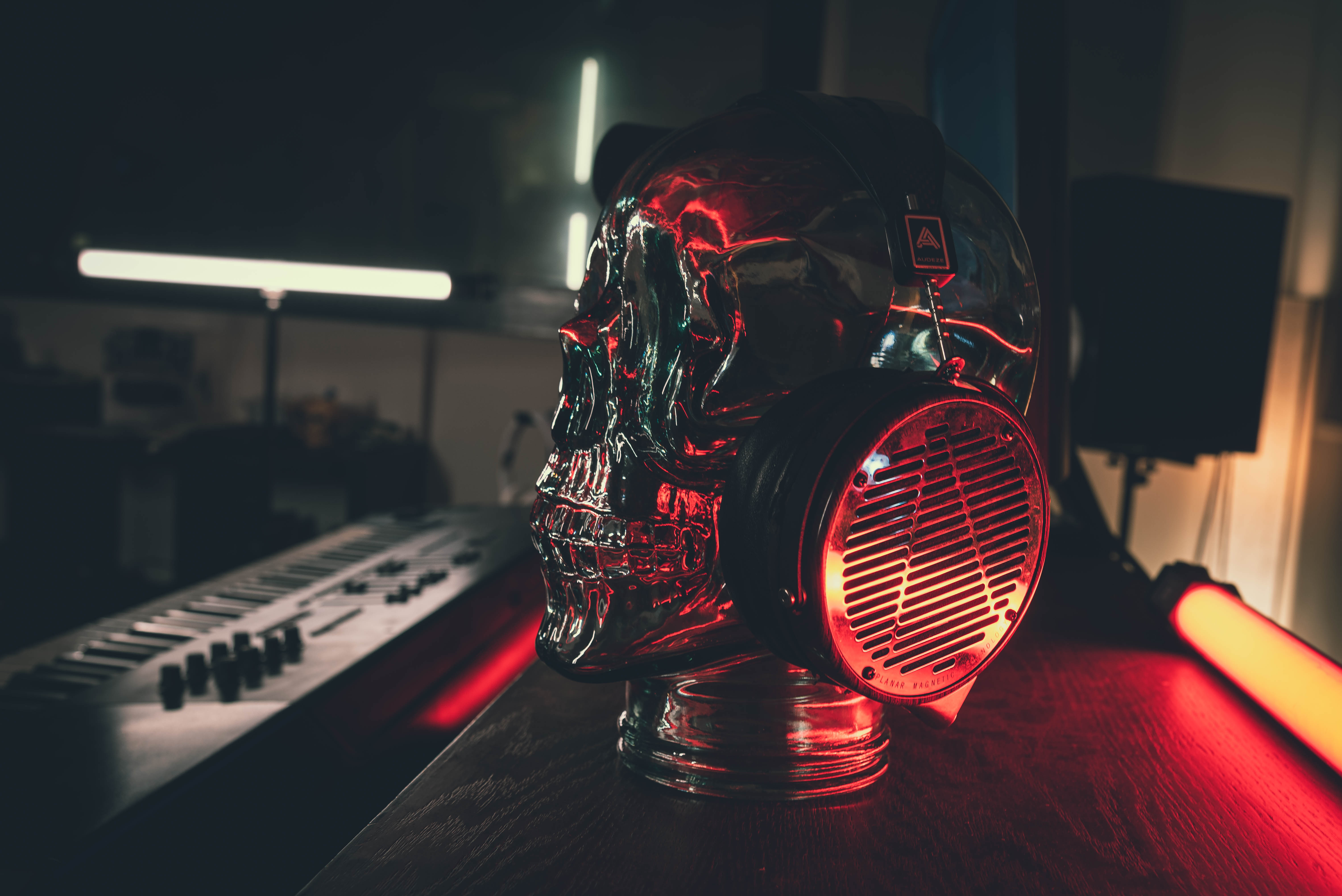



.jpg)


